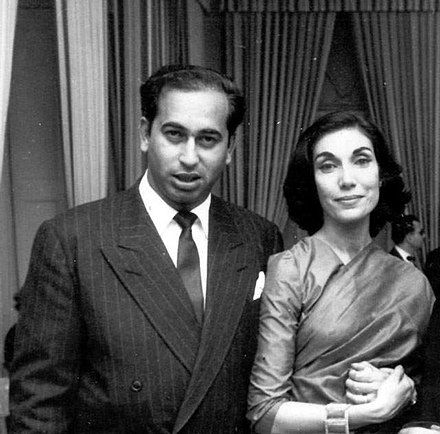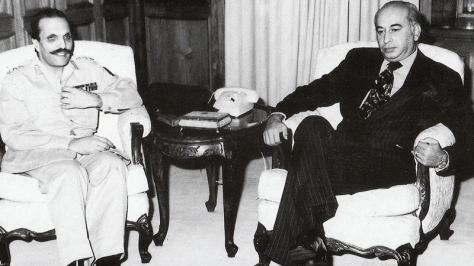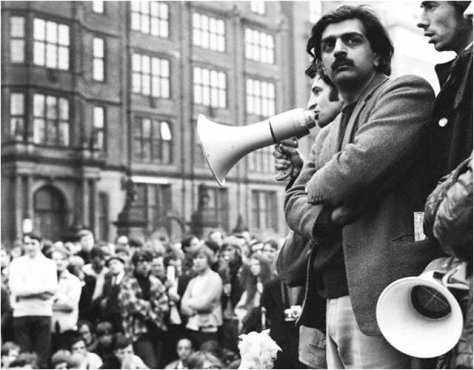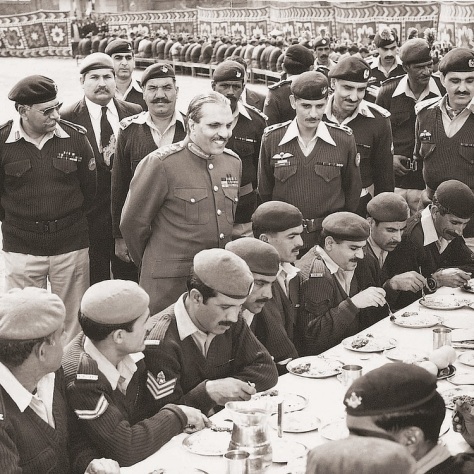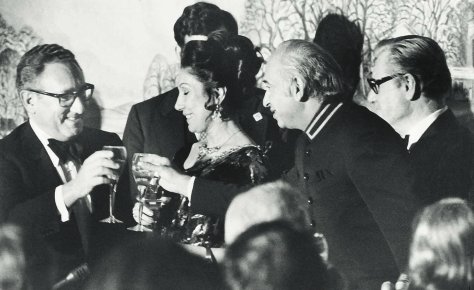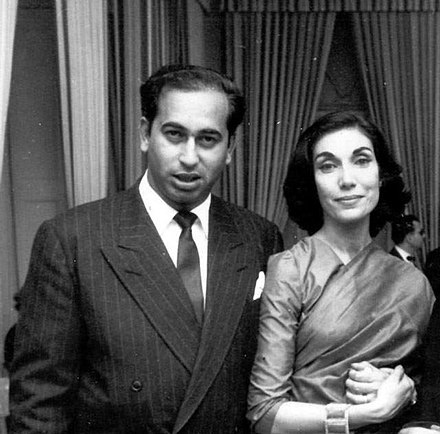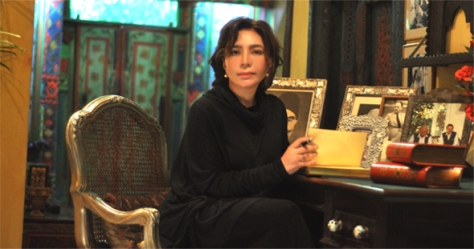 This blog is in the continuity from my previous blog. Before you begin reading further, kindly read the first part HERE.
This blog is in the continuity from my previous blog. Before you begin reading further, kindly read the first part HERE.
In the previous blog, I discussed the issues Pakistan is facing in the recent years and what points the observers have to consider in scrutinizing the government. Now I will surface the expectations on the revival of survival.
INVOKING A TABDEELI
The result of the recently concluded general elections comes to a massive surprise with a voice of change drumming almost everywhere. Being hopeless to observe the cipher-bound nation to vote the same parties repeating the same destruction and failing the country, I was believing that the same Pakistan Muslim League – N (PMLN) running the government will win the election after collecting the sympathetic votes for imprisoning their favorite leaders or perhaps Pakistan Peoples Party (PPP) will take the turn.
Moreover, Imran Khan‘s former wife Reham Khan sparked nationwide controversy by making blatant allegations in her recently released book. I am not aware of how accurate the allegations are. My brain doesn’t accept the kind of allegations she made on her former husband because those claims make Khan look pure evil but then, Khan had a Sita White case in the past with whom he has an illegitimate daughter. Fingers crossed or in the other words, God knows the best.
But Imran Khan’s Pakistan Tehreek-e-Insaf (PTI) are victorious with 116 seats for the National Assembly. The 22-year wait to win the general election is over. Khan’s declaration of change in the form of a tsunami which he coined in a political jalsa a few years ago all becomes true. Back in 2002, when Pakistan Muslim League – Q (PML-Q) won the general election, PTI won only one seat and that too by Khan. This election, Khan win 5 seats alone wherever he contested becoming the first Pakistani politician to record victory at 5 different polling stations. Back in 1970, Zulfikar Ali Bhutto contested elections from 4 constituencies and managed to win 3.
Numerous wonders occurred at this event. PPP chairman Bilawal Bhutto lost a seat from Lyari district where his party had political dominance for decades. Muttahida Qaumi Movement‘s 30-year rule over Karachi ended when PTI won 15 of the 21 seats in Karachi for the National Assembly. The province of Khyber Pakhtunkhwa (KPK) had a tendency towards changing the ruling party in the general elections every time in the past 25 years. PTI became the first party to win KPK assembly in consecutive terms which prove that their contribution for the KPK people was recognized and trusted.
Voice of change and change of voice coincides across the nation. A politician like Maulana Fazlur Rehman who in almost every general election ended winning the seat in the National Assembly couldn’t win this time. Amir Liaqat joining PTI five months ago raised the eyebrows to the standards the party had raised or lowered to the voice the change for the better cause. But how crucial was this decision? People in Karachi, who were fed up of MQM’s rule especially Farooq Sattar, decided to vote and prefer Amir Liaqat over him for the sake of changing hands and looking a better future of Karachi under PTI after listening to Khan addressing tons of promises in the last few years. It indeed is a change when so many calamities over PMLN, PPP, and MQM occur.
KHAN’S ADDRESSES – A VOICE OF HOPE

The political dynamics are changing, so are the global voices. After a few channels from the Indian media displayed hatred towards Khan, many people in India including famous names in sports and film industry are praising his success and struggle, and hoping to see a new wave in Indo-Pak diplomatic ties. Navjot Sidhu accepted Khan’s invitation to participate in the oath ceremony. With Sidhu’s arrival, I hope a dove raises the bar of peace between the two countries.
Imran Khan with scores of addresses and promises in his jalsas forwarded highly impressive addresses after the election results before and after becoming the 22nd prime minister of the country. A lot of topics came to the attention but with a powerful stature and a command in speaking with the required determination that he always possessed, what made his listeners feel good and hopeful was the freshness of words. He spoke some lines which no biggest authority in Pakistan ever did. There is a reason why most of the viewers and listeners trust him.
What I will try to do is bring a few bullet points in attention to the readers from both the addresses to understand what we are to expect and hope in the next five very important and crucial years.
01. Khan idealized that the state under him will be like Medina under the times of Prophet Muhammad Sallallahu Alaehe Wasallam (SAW). Now, to be honest, this religious circle of vision may take the nation into daydreaming and completely avoiding the ground reality of the offense the country has suffered under the name of Islam. With people belonging to many different Islamic ideologies under the same geographical roof, it is almost impossible to convince all at a point or put them in any religious agreement.
There is every chance that his every move or decision is put to an argument if the decision is according to Sharia law or if Prophet Mohammad S.A.W. allowed. Most of the people in the country have taken the religious matter to different dimensions, they understand less, gets sentimental more. Many times, the probability of doubt towards understanding a scholar or an orator about Islam or any aspect adds more rage, fury, and risk. In such a situation, my opinion is that Khan should have avoided such an extremely bold statement because when the lumberjack chops the trunk, the whole tree collapses.
So the nation should observe that Khan spoke about the principles of the ideal state to establish so they should not fall delusional of thinking a whole newly constructed Islamic state and begin comparing his every move for the state with the state Prophet Mohammad S.A.W. established. He, in short, has set Medina state as a prime example.
02. Khan spoke highly of human development and recognition of the poor to be fed and paid what they deserve. He was so highly concerned of child growth that he, live on the state channel, showed two diagrams of children only differing due to consumption of nourishing food required for a two-year-old child.
03. Khan confirmed that political rivalries are the past for the sake of bringing solidarity in the country. I do not expect the rivalry to end. When he is running the government, there is every possibility in the coming years that his rivals ridicule the country’s political and socioeconomic situation in the coming years.
04. Khan clearly stated that the accountability will start with him and his ministers, followed by the others. One of the most impressive lines in his address.
05. Khan encouraged the overseas Pakistanis to invest the money in the country under the new leadership and promised the nation to protect the tax money and better the tax culture.
06. Khan innovated shaping the PM house into an educational institution and to bring in public use of all the governor houses. Because he admits humiliation for living in a palace of a country where more than half of the population are poor.
With that, he submitted his assurance that he, his governors and ministers will reduce their expenditures and adopt simplicity. The expensive vehicles which were used by the previous governments will be sold in the auction to the businessmen and put the received hefty money in the national treasury. The security will be reduced.
07. Khan talked about sending a team to China, make a report and learn the progress of the efforts the Chinese government made to overcome poverty at such a high rate.
08. Khan gave equal importance to both Saudi Arabia and Iran and voiced for immense efforts to ease the Middle East crisis. I have discussed Pakistan’s role in the Middle East crisis in the previous part.
09. Khan expressed disappointment to the Indian media for spreading negative portrayal but urged for dialogues and stepping ahead for better ties and open on trade relations and transactions.
10. Khan spoke of law amendments to ensure speedy disposal of civil cases within a year. We know that thousands of cases are shelved unfought for years and the poor is the one who suffered the most. If this happens, justice may be believed to earn its lost repute.
11. Khan stressed on the improvement in the education and the government hospitals.
12. Khan raised the issue of global warming and emphasized on a nationwide tree plantation campaign. Khan on the 3rd of September has launched a mega Tree Tsunami project in which 10-billion trees will be planted in the next 5 years against the climatic and environmental challenges. If this plan succeeds, Pakistan may be counted among the countries who raise their voice and contribute against the challenges. It may prove to be a significant turning point.
13. Khan challenged and offered cooperation to his rivals by investigating on any requested stations where the losing parties believed that the elections were rigged. This act of daring is something which the previous ruling party didn’t commit or offer.
14. Khan, in his final lines, envisioned that the country will financially prosper to the extent that there would be no tax receiver and he doubted if he may be alive to see that happen. This statement will be remembered for a long time even after his soul departs because the quality of the great people is that they, in their lifetime, utter some quotes which become the observational phenomena.
WERE THE ELECTIONS RIGGED?

Many observers have depicted their satisfaction. I am not an observer of this scenario. Rigging has always been in our blood, this will never stop. As far as politics is concerned, after every 5-year period, the victorious party claims the general election to be the purest while the rest whine. The same method was applied this time when all the losing parties assembled for the conference and decided whether to sit in the national assembly or not. It indeed is traditionally hilarious that after losing the election, the party claims rigging and later on decides to sit in the assembly indirectly and technically accepting the results, and become the opposition. Because seriously, who refuses the power of seat in the national assembly? Better to sit in the opposition and play chess.
They say that the Election Commission of Pakistan was responsible for the election. But let us agree on the open secret that there is something fishy about the happenings in Pakistan’s political affairs in the recent months. The judicial and military accountability over the-then existing political scenario troubled them, the biggest names went to prison or were declared impotent to contest any seat for the general elections. Yes, nature had its say too when the heavy rains in Lahore exposed the lies of the provincial government and the professed Paris in Lahore turned in to Venice. The army security had much of the control on the polling stations I agree. I asked a few of my friends about the situation there. But why the cameras weren’t allowed inside the stations? Only God knows what exactly happened but, to be honest, if the elections still were rigged, I am certainly okay with it.
Why so? Because the previous rigging established no hopes but sorrows. Voters voted the same parties and whined all the years. You have tried and trusted them for decades twice and thrice. You have lived in fear at certain places. This time, the rigging that brings the new faces and new hopes are acceptable, the majority of the nation is convinced that they can certainly expect better from the new ruling party. Perhaps, this was the fairest ‘rigged’ elections ever. And there is nothing wrong in hoping that the country’s broken spine and damaged reputation can be tried to fix and improve.
REALISTIC PATRIOTISM

Pakistanis are the most patriotic nation in the world because there is no country whose nation celebrates its independence like her, but unfortunately, their sincerity and passion are over-dramatic and unrealistic. I call it chauvinism with the all-is-well approach because their contribution is less to what words of their utmost love for the country they utter from their mouths.
Patriotism is a form of emotional madness towards liking and loving a particular geographic piece of land with the addition of developing aerial theories which most of the time doesn’t make logical or lacks common sense. People with such mentality loses conscience and begins to believe that they are superior to the others.
Failed governments have destroyed the societies for decades and as compared to the golden period of their cultural integrity, we have observed more moral calamity, rage, hatred, delusion, frustration, madness, negativity, lie, manipulation, backbiting, brainwashing, abuse, killing, and firing.
Further destruction came in the education when so many lies while teaching the country’s history wrecked and manipulated the generations and developed disturbance and confusion towards the reality which they declared frailty. After all of this, if the nation thinks that they really are patriotic, then it is a lost case and doesn’t make sense.
Thinking and understanding towards the religion and tolerance have dropped a severe low, also in decades, when religion was used as a political tool and many many many so-called religious organizations came to existence to fool the illiterate and ignorant people. Many flags under the motive of spreading the message of Islam clashed the brains of common and aided with false and wrong beliefs. The wrongs and fongs became traditions and rituals. Some of those organizations became political parties and some campaigns for spreading terrorism.
The passion of the-then nationalism and patriotism which was highly delusional on paper with zero motive now have a new voice and new hope. Under a new leadership, this jazba can flourish and help to contribute an honest cause and build them a new mason.
I am not a nationalist or a patriotic individual but I feel disappointed to observe a country in such a miserable condition and totally lost on the purpose of its existence. I admire Mr. Jinnah’s charismatic personality but do not believe in the vision of Mr. Jinnah and strictly disagree with the partition of a land into two on the bases of a two-nation theory which is built on strict racism and hatred. Both Hindus and Muslims have lived together for centuries. The existence of both the countries became a possibility thanks to the conclusion of World War II which pushed the British Empire to release the countries from the colonization. God knows how long we all would be colonized if this war would have never happened or never ended.
I am not a rebel nor a time traveler to rectify the blunder of the country’s founder but with the passing of time, I have to compromise and recognize the existence of this country and I, like other people, build HOPE to see a better future of this country with the new masons enrolled.
People should not jump waiting for the results from the day after taking the oath. People must realize that much a loss in shape of money has been suffered. The act of begging by the previous governments towards the institutions and supreme authorities has led the country in bad repute.
After some years, we will look back and observe how the revelation of the Panama Papers and Microsoft’s Calibri font ate PMLN. It looks no less than a wonderful script of a political drama.
What is Naya Pakistan? It is a substantial imagination of building a utopian state which failed to create in 71 years. It is a renovation of the destroyed building. This is not coming to reality soon. I have observed the craziness on the social media about people asking and questioning the possibility of observing Naya Pakistan in a few days and weeks. This is sheer nonsense. Even the final results of your board exams do not show up that quick as the people are demanding.
Tremendous patience is required. It is about rebuilding a country, not a school or shopping mall. It will take years to produce the genuinely positive results. Enough addresses from Khan, action has to be implemented. The government should be judged after at least six months and should be highly discussed when the first federal budget under this government is announced. But people must realize that Khan cannot do this alone, the nation has to cooperate and contribute. The nation has to do the favor to aid Khan to produce the expected results. If the level of trust has raised a few percentages under him, there is a possibility to believe because hoping is believing.
No government in the political history of Pakistan has ever completed its 5-year tenure. Will Khan be able to complete? Will Khan fulfill the promises? Will the ruling party surpass the expectations of the nation? Will there be a booming economy? Will the poverty decrease and the workers earn the deserving? Will the justice serve the right and prevail?
Time will tell…
Rise…






